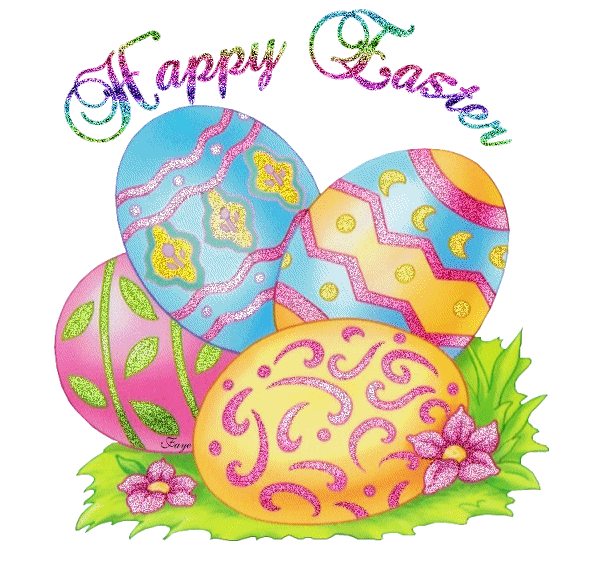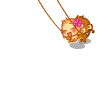Past Continuous
Published by We like English! at 21:41 0 comments
FORM
[was/were + verb + ing]
Examples:
•You were studying when she called.
•Were you studying when she called?
•You were not studying when she called
Exercise
[was/were + verb + ing]
Examples:
•You were studying when she called.
•Were you studying when she called?
•You were not studying when she called
Exercise
School starts on Monday the 13th!
Published by We like English! at 17:17 0 commentsRelative Pronouns: who - which
Published by We like English! at 20:57 0 comments
A relative pronoun is a pronoun that introduces a relative clause.
It is called a "relative" pronoun because it "relates" to the word that it modifies. Here is an example:
•The person who phoned me last night is my teacher.
In the above example, "who":
•relates to "person", which it modifies
•introduces the relative clause "who phoned me last night"
Relative pronouns can refer to singular or plural, and there is no difference between male and female.
We use "who" for people and "which" for things and animals.
Exercise 1
Exercise 2
It is called a "relative" pronoun because it "relates" to the word that it modifies. Here is an example:
•The person who phoned me last night is my teacher.
In the above example, "who":
•relates to "person", which it modifies
•introduces the relative clause "who phoned me last night"
Relative pronouns can refer to singular or plural, and there is no difference between male and female.
We use "who" for people and "which" for things and animals.
Exercise 1
Exercise 2
If Clauses - Type I
Published by We like English! at 13:01 0 comments
Form
if + Simple Present, will-Future
Example: If I find her address, I will send her an invitation.
The main clause can also be at the beginning of the sentence. In this case, don't use a comma.
Example: I will send her an invitation if I find her address.
Note: Main clause and / or if clause might be negative.
Example: If I don’t see him this afternoon, I will phone him in the evening.
Use
Conditional Sentences Type I refer to the future.
Exercise
Adjectives
Published by We like English! at 19:52 0 comments
Comparative Form and Superlative Form (-er/-est)
one-syllable adjectives (clean, new, cheap)
two-syllable adjectives ending in -y or -er (easy, happy, pretty, dirty, clever)
Exceptions in spelling when adding -er / -est
silent ‘e’ is dropped
Example: late-later-latest
final ‘y’ after a consonant becomes i
Example: easy-easier-easiest
final consonant after short, stressed vowel is doubled
Example: hot-hotter-hottest
Comparative Form and Superlative Form (more/most)
adjectives of three or more syllables (and two-syllable
adjectives not ending in -y/-er)

Comparative Form and Superlative Form (irregular comparisons)

Exercise
The Future
Published by We like English! at 19:39 0 comments
glitter-graphics.com
Use
1) Future actions happen without the speaker's intention
The sun will shine tomorrow.
2) Predictions, assumptions
I think Sarah will arrive in Paris at 6 pm.
3) Spontaneous actions
Hang on! I'll have a word with you.
Examples
Affirmative sentences:
He will play football.
He'll play football.
Negative sentences:
He will not play football.
He won't play football. or He'll not play football.
Questions:
Will he play football?
Exercise
The Story of Easter
Published by We like English! at 15:29 0 comments
glitter-graphics.com
Easter is a time of springtime festivals.
In Christian countries Easter is celebrated as the religious holiday commemorating the resurrection of Jesus Christ, the son of God. But the celebrations of Easter have many customs and legends that are pagan in origin and have nothing to do with Christianity.
Traditions associated with the festival survive in the Easter rabbit, a symbol of fertility, and in colored easter eggs, originally painted with bright colors to represent the sunlight of spring, and used in Easter-egg rolling contests or given as gifts.
The Christian celebration of Easter embodies a number of converging traditions with emphasis on the relation of Easter to the Jewish festival of Passover, or Pesach, from which is derived Pasch, another name used by Europeans for Easter. Passover is an important feast in the Jewish calendar which is celebrated for 8 days and commemorates the flight and freedom of the Israelites from slavery in Egypt.
Easter is at the end of the Lenten season, which covers a forty-six-day period that begins on Ash Wednesday and ends with Easter. The Lenten season itself comprises forty days, as the six Sundays in Lent are not actually a part of Lent. Sundays are considered a commemoration of Easter Sunday and have always been excluded from the Lenten fast. The Lenten season is a period of penitence in preparation for the highest festival of the church year, Easter.
Easter Eggs
Published by We like English! at 15:15 0 comments
Of all the symbols associated with Easter the egg, the symbol of fertility and new life, is the most identifiable. The customs and traditions of using eggs have been associated with Easter for centuries.
Originally Easter eggs were painted with bright colors to represent the sunlight of spring.
Different cultures have developed their own ways of decorating Easter eggs.
Originally Easter eggs were painted with bright colors to represent the sunlight of spring.
Different cultures have developed their own ways of decorating Easter eggs.
The Easter Bunny
Published by We like English! at 15:12 0 comments
The Easter bunny has its origin in pre-Christian fertility lore.
The Hare and the Rabbit were the most fertile animals known and
they served as symbols of the new life during the Spring season.

glitter-graphics.com
The Hare and the Rabbit were the most fertile animals known and
they served as symbols of the new life during the Spring season.

glitter-graphics.com
1st of April - April Fools' Day
Published by We like English! at 14:53 0 comments
The history of April Fool's Day is not totally clear. There really wasn't a "first April Fool's Day" that can be pinpointed on the calendar. Some believe it sort of evolved simultaneously in several cultures at the same time, from celebrations involving the first day of spring.
Practical jokes are a common practice on April Fool's Day.
Sometimes, elaborate practical jokes are played on friends or relatives that last the entire day.
April Fool's Day is a "for-fun-only" observance. Nobody is expected to buy gifts or to take their "significant other" out to eat in a fancy restaurant. Nobody gets off work or school. It's simply a fun little holiday, but a holiday on which one must remain forever vigilant, for he may be the next April Fool!
The news media even gets involved. For instance, a British short film once shown on April Fool's Day was a fairly detailed documentary about "spaghetti farmers" and how they harvest their crop from the spaghetti trees.
The Making Of - BBC
Practical jokes are a common practice on April Fool's Day.
Sometimes, elaborate practical jokes are played on friends or relatives that last the entire day.
April Fool's Day is a "for-fun-only" observance. Nobody is expected to buy gifts or to take their "significant other" out to eat in a fancy restaurant. Nobody gets off work or school. It's simply a fun little holiday, but a holiday on which one must remain forever vigilant, for he may be the next April Fool!
The news media even gets involved. For instance, a British short film once shown on April Fool's Day was a fairly detailed documentary about "spaghetti farmers" and how they harvest their crop from the spaghetti trees.
The Making Of - BBC
Egg Proverbs
Published by We like English! at 14:38 0 comments
glitter-graphics.com
Don't count your chickens before they're hatched. (Unknown)
It is one thing to cackle and another to lay an egg. (Ecuador)
He that would have eggs must endure the cackling of hens. (Russian)
An egg thief becomes a camel thief. (Persian)
Eggs must not quarrel with stones. (Jamaican)
A turtle lays thousands of eggs, nobody knows, but when a hen lays an egg, the whole village know. (Malaysia)
Kill not the goose that lays the golden egg (Aesop)
The Present Continuous and Present Simple Tenses
Published by We like English! at 18:14 0 comments
Permanent (usual) and Temporary (now, around now) actions.
* We use the Present Continuous tense to speak about things which are happening now or things which are temporary.
I am not working now. I am on holiday.
Sally is listening to a new CD.
Who are you phoning?
* The Present Simple tense describes usual, repeated and permanent things - for example, always, usually, often, sometimes, never.
I work as an accountant.
John doesn't know German.
How often do you play tennis?
Present Continuous and Present Simple to talk about the future.
* We use the Present Continuous Tense for plans and arrangements.
What are you doing tonight?
I'm seeing a very important customer in my office at 4 o'clock.
We are going to the see for our holiday.
Where are you staying in Vienna?
I'm not going anywhere. It is final.
* We use the Present Simple in the conditional clauses after if, when, as soon as, until etc, and when we talk about timetable, schedules, itineraries etc.
What will you do if you fail your exam?
We will wait, until she comes.
My plane takes off at 9.00.
The President arrives in Norway on 17 September.
What time does your train leave?
Exercise
Present Continuous
Published by We like English! at 18:08 0 comments
Hi there! I'm The Present Continuous Boy. I'm here to tell you what I'm doing at the moment.
Now I'm not studying, but I'm working taking photos.
This evening I' m taking photos of some friends at a party.
Then I' m going out with a girl, but she's working in the disco today. She isn't coming with me to the party. Are you coming with me guys?
Exercise
Subscribe to:
Comments (Atom)













